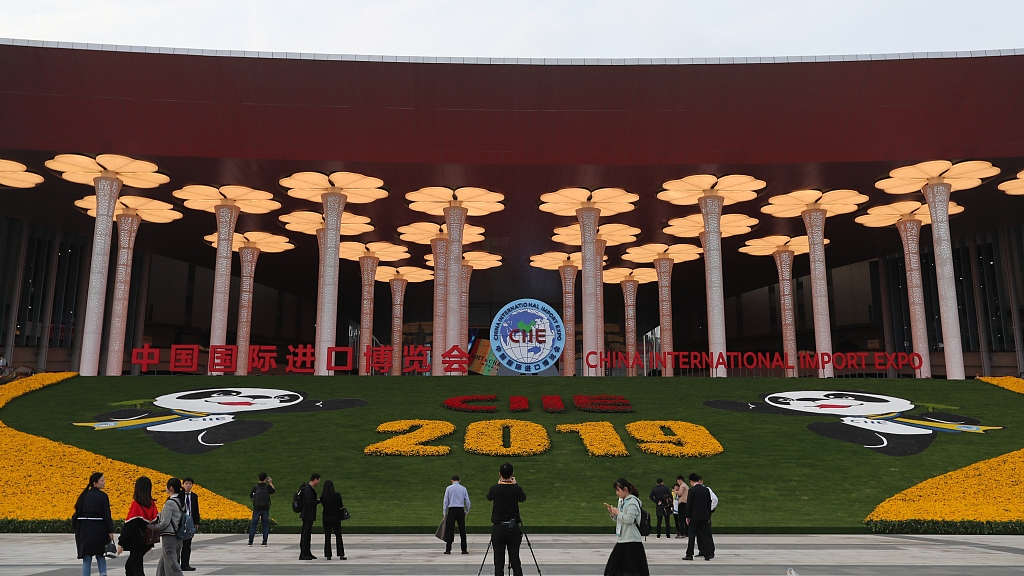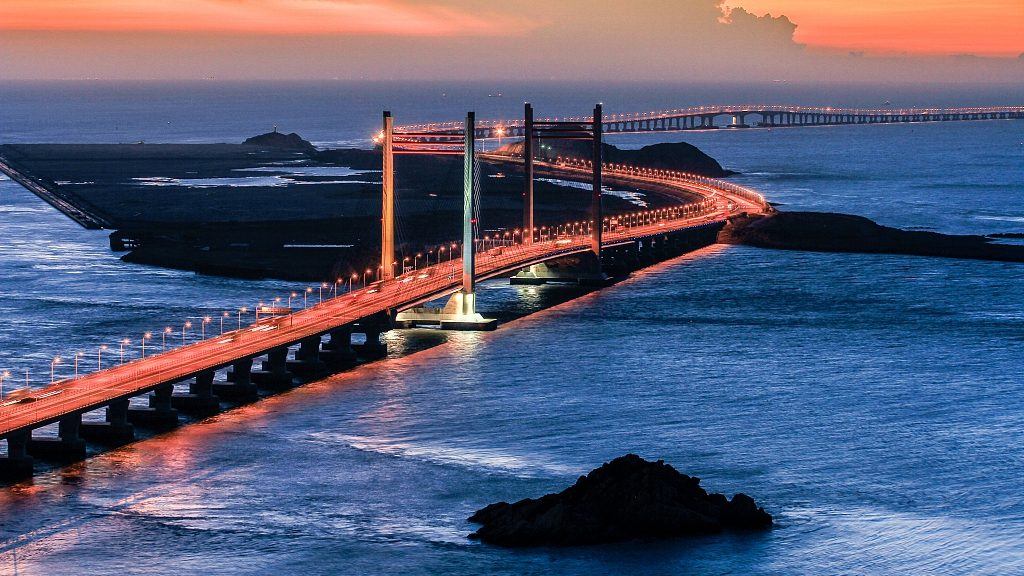
Editor's note: Andrew Korybko is a Moscow-based American political analyst. The article reflects the author's opinions and not necessarily the views of CGTN.
The second China International Import Expo (CIIE) is an important economic event for developing countries because it provides them with the opportunity to rebalance their trade with China. China is the world's largest exporter and has helped countless people in developing countries to improve their standards of living through the purchase of China's high-quality, low-cost products. This is especially significant in the information-communication technology sphere that has greatly contributed to connecting the previously isolated populations with the rest of the global community.
The trade surplus entailed with China has regrettably become politicized by international actors who have falsely alleged that China is only interested in "extracting resources" and "dumping junk." These critics either don't understand or purposely ignore the fact that resource sales to China have given those governments extra revenue to invest in their populations, nor do they acknowledge that Chinese exports have contributed to lifting millions of people out of poverty by providing them with the modern-day goods to live on par with contemporary standards of life.
It is, therefore, false to categorically accuse China of having a "one-way street" trade mode that only serves to benefit Beijing. This is further disapproved by the billions of dollars' worth of investments that have been made across the developing world through the Belt and Road Initiative (BRI). In fact, BRI investments are intended to act as a catalyst for their domestic economic development by facilitating those countries' trade with every nation along the road. In doing so, producers in these countries can more easily export their goods, thus cutting costs back home and leading to more jobs for the growing population.
The system of complex economic interdependence created through the BRI has matured to the point where the recipients of the investments are in a comfortable enough position to increase their exports to China. This is exactly what the CIIE encourages. It allows them to rebalance their trade with one another and redistribute more benefits. China has a natural interest in diversifying its sources of imports and enabling its partners to tap into its vast consumer market to enhance and expand the mutual benefits of their cooperation.

Contrary to those who question whether the BRI would bring a heavy debt burden to participants, investments in transportation and infrastructure would boost connectivity through which economic development and integration will transform people's lives. /VCG Photo
Contrary to those who question whether the BRI would bring a heavy debt burden to participants, investments in transportation and infrastructure would boost connectivity through which economic development and integration will transform people's lives. /VCG Photo
The first phase of China's engagement with developing countries is primarily focused on importing their natural resources to provide revenue for their state-linked companies. It was expected that these companies will invest the profits into improving the living conditions of the population.
Its second phase of engagement through the CIIE will see the importation of all sorts of goods – both manufactured and agricultural – to more directly benefit the exporter's entrepreneurial population by providing companies in the general society with revenue that they could then invest in their workers, families and the economy at large.
To put it another way, the traditional framework of state-to-state engagement is transforming into one of business-to-business and business-to-consumer engagement, which ultimately brings people across the world closer to one another through the CIIE integration platform and under the BRI umbrella. Thus, advancing the common goal of eventually creating a community of shared future for mankind. It needs to be understood that just like Westerners regularly quip that "Rome wasn't built in a day," the BRI and its world-changing goals will not be accomplished in a short span of time either. It takes patience to see these grand projects mature.
The world is well on its way to sharing the fruits of this labor, given that the second annual CIIE symbolizes just how far and wide-reaching China's mutually beneficial engagement with developing nations has become. The opportunity to rebalance trade between them through the prioritization of their business-to-business and business-to-consumer ties with China will benefit everyone involved in this evolving system of economic interdependence. It will be the first time that many of those countries will have the chance to compete on a level playing field as the BRI liberates them from the yoke of Western bodies' arbitrary commands.
(If you want to contribute and have specific expertise, please contact us at opinions@cgtn.com)